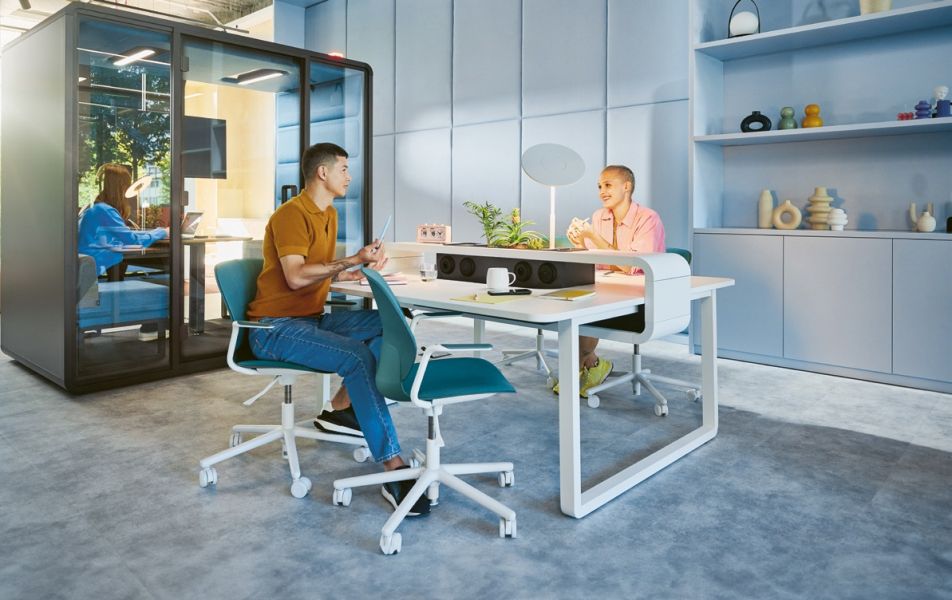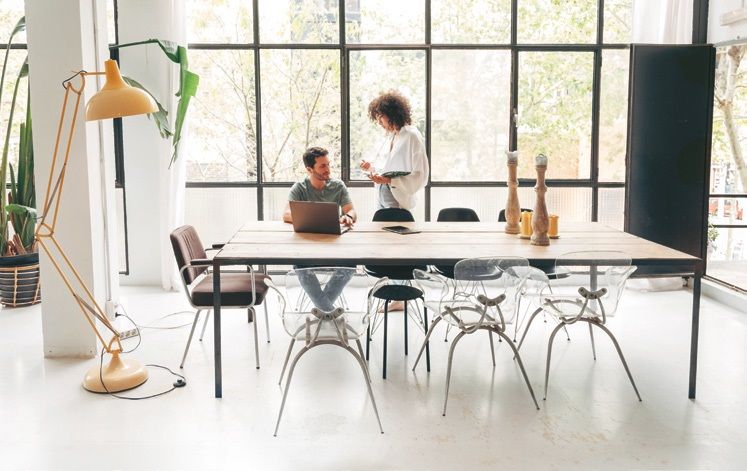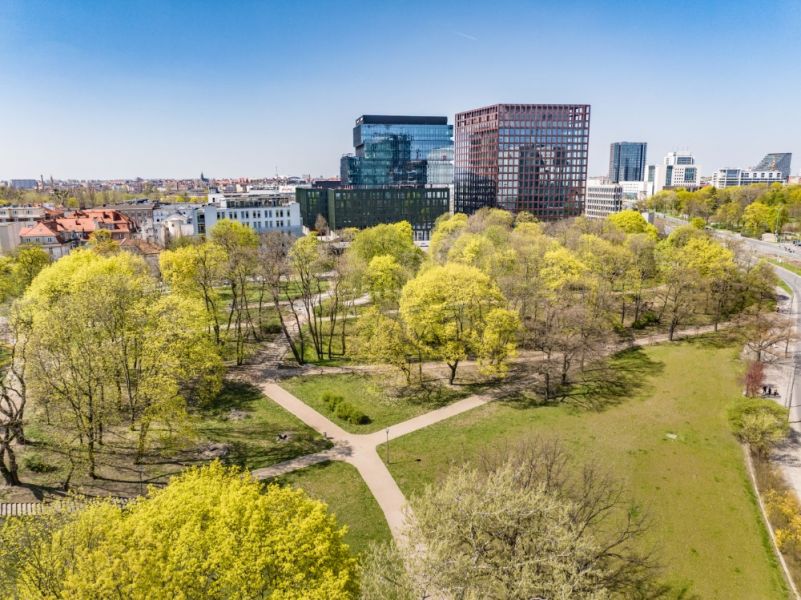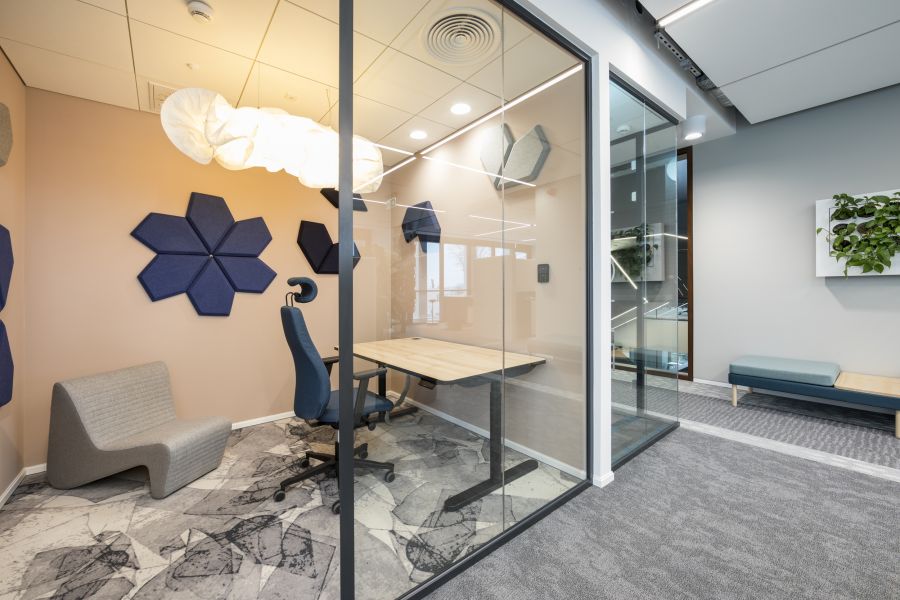What impacts your workplace? Current trends and how they affect the office space
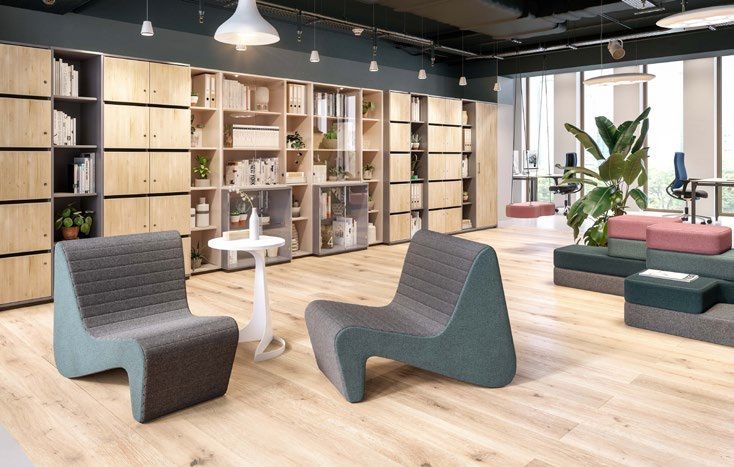
In the post-pandemic era, with new generations entering the job market and the rise of remote work, our needs extend beyond choosing desks and chairs. The evolving landscape presents challenges impacting decisions globally. As the world transforms, so do our priorities, work nature, and professional activities, demanding a re-evaluation of office settings.
An office is more than just an empty space where we put high-quality furniture solutions. It’s a place that supports and motivates: that’s how it becomes an important success factor for each company and its employees. Although you might think it’s only Facility or Office Managers who make decisions concerning the office layout and arrangement, many other factors affect the final shape and look of the office space. These factors can be divided into three categories: global trends, geopolitical situation in the world, and most of all, individual needs of the employees and the whole organization.
Factors that affect the office space
Global trends reflect the current fashion. This is how we learn what others are doing, what’s important and worth following. Trends are a source of inspiration and an important factor that points to the direction of anticipated changes. They also include specific activities and modes that we notice in various spheres of our lives.
One of such trends, for example, is Shared Economy, which has been with us for a while now, and recently has become more visible in the office space. Shared Economy is a social and economic phenomenon, which involves optimising the use of available resources, and includes both direct service performance and shared use of goods or products. We share food, transport and accommodation. Shared Economy in the office space is reflected in the concept of Desk Sharing, where people share individual workstations.
There are certain limitations to this idea, though. They include the need to respond and adjust to the current global situation. Geopolitical and economic changes affect the decisions concerning office space: whether to rent or move the office, reduce the rented space or the budget for office equipment. Quite often it's the geopolitical situation that is the ultimate factor that defines the scope of our activities chosen based on the global trends and individual needs.
The last group of factors that affect the office space can be referred to as the main moderator of the measures we take. That’s the conclusion we made after completing a project for one of our clients from the production sector, who originally only wanted to follow the hybrid office trend. Such offices focus on Desk Sharing and increasing the choice of spaces designated for teamwork. After extensive research and surveys conducted among the employees in this location, we found out that the nature of work and the company policy do not go well with the modern and fashionable idea of a hybrid office. The company employees were working with confidential data and loads of documents they would have to carry every day. In this situation, the office would have become a liability and a limitation rather than a place that fosters and facilitates everyday efforts.
Each of the above factors that affect the office space is important, and it’s hard to say which one should be prioritised. Plus, these factors have different functions in the decision-making process: they can be an inspiration or a moderating force. While creating an office environment, you should consider all of the above factors. Design decisions should be based on a holistic approach, which includes both the individual functions of every single element and the relationships between them. That’s how you come up with an office space that responds to the current needs but is also ready for adjustment in the face of any future challenges.
The examples we provide below are chosen to illustrate how global trends, geopolitical situation and individual needs of employees and organizations affect the shape of the office space, and how they can be successfully combined in practice to make a harmonious and functional office space.
Hybrid
Although a hybrid office – shaped by the hybrid working model – is an idea we adopted after the COVID-19 pandemic, it’s not a new concept. We’ve seen hybrid products in GMO or the automotive sector. In the office, a hybrid working model brings about a series of unique characteristics. A hybrid office prioritises relationships and interaction between employees. Such an office should therefore accommodate solutions that can be easily rearranged and regulated (or that are self-adjustable), and that can be used to modify the space to match the needs of your team.
In 2022, Nowy Styl conducted research and found out that a hybrid office should accommodate focus work. This means individual zones should be isolated to provide just the right degree of silence. This can be done with sound-absorbing panels, affecting the acoustic properties of an office. Such panels can be used as a separator when you don’t want to construct extra partition walls.
Community
The dynamic growth of remote work accelerated the development of certain trends. People are becoming less loyal to their employers and more ready to change jobs. Organizations are therefore faced with new challenges: how to retain employees and stop the intense migration?
They are now doing it by focusing on interactions and creating a space for teamwork. Positive interpersonal relations at work are of utmost importance, in that they enhance self-esteem and a sense of security, which is what people tend to rely on in difficult situations. Meeting with others in a shared space is a chance to boost responsibility: the employees who identify with their workplace community are more loyal and less likely to look for other employment opportunities. But of course, apart from structural adjustments (proportion of various spaces), building employee loyalty also requires choosing relevant furniture to support the process. A cosy workplace, which feels like home or a café, fosters greater openness and spontaneous conversations, which is a good booster for interpersonal relations and facilitates communication, also when it comes to sharing important information.
It’s also good to remember that an office arrangement itself has considerable cultural and relationship-building potential, so it’s worth investing Value in it and adjusting it to the changing reality even if you choose to reduce the rented office space.
Ergonomics
Health is something that’s always in fashion. Ergonomics is a constantly growing trend and a key factor in designing a modern office space. This is additionally proved by the fact that many employees quote a lack of an ergonomic workstation as the main drawback of remote work. Furniture solutions are designed (and chosen!) to prioritise the employees’ health and comfort. Ergonomic workstations make it possible for you to change positions while you work, find the right support for your back, shoulders and elbows, and ensure the proper angle between your legs and the floor. Focusing on ergonomics not only improves the employees’ well-being and efficiency but also fits in with the modern approach to creating an office space which promotes health and comfort on top of productivity.
You will now see that designing a modern office is a challenge, and when planning a layout and interior arrangement, you must consider inspirations drawn from global trends, flexible responses to the dynamic geopolitical situation, and the individual needs of the employees and the organization. An effective combination of these elements is the key to creating an office that not only matches the current requirements but is flexible enough to accommodate any changes in the future.
Author: Aleksandra Szeląg, Senior Workplace Consultant, Nowy Styl
This article comes from magazine:
FOCUS ON Business #14 January-February (1/2024)
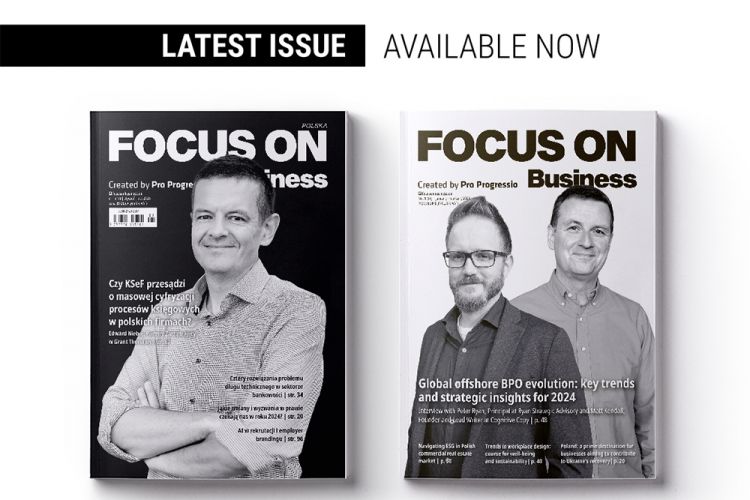 Check the issue
Check the issue



